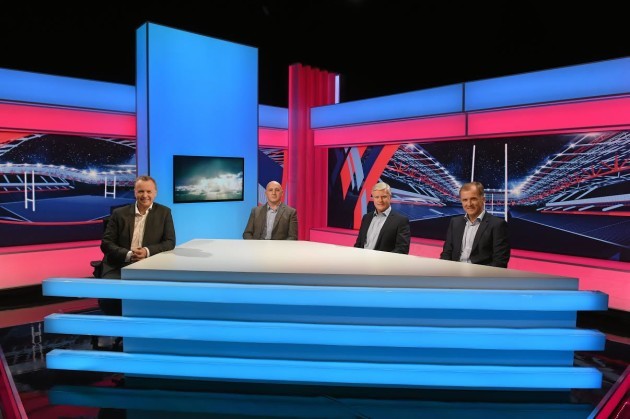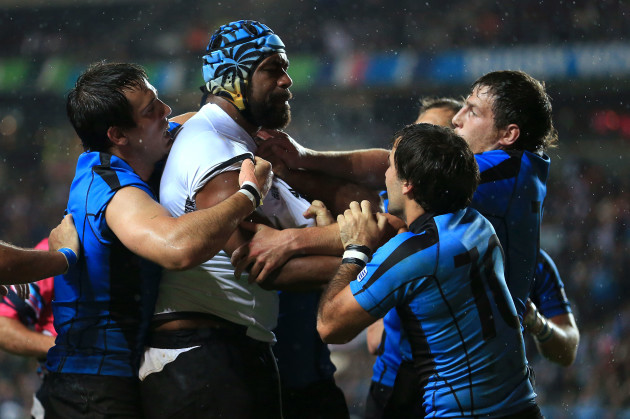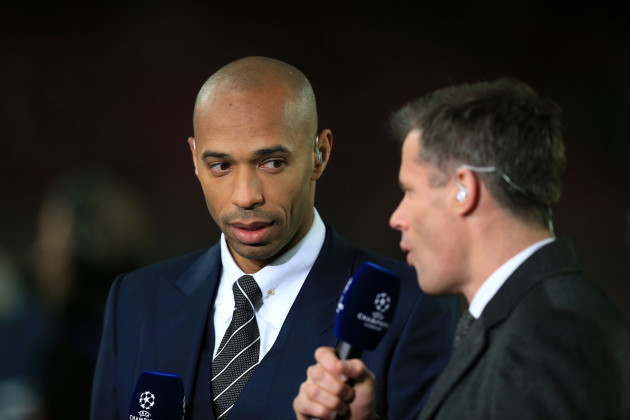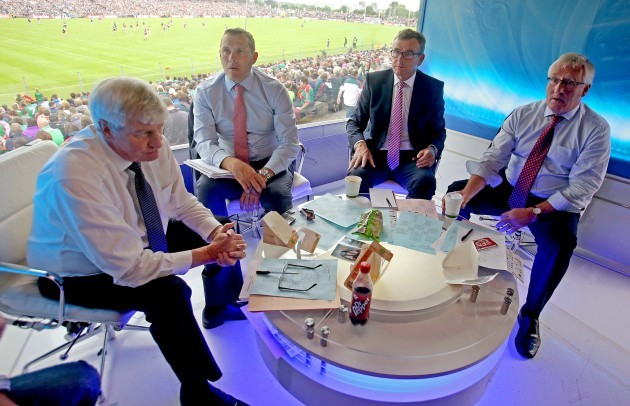JUST 12 DAYS had passed since Nigel Owens peep-peeped the final whistle on Rugby World Cup 2015 when the news broke that TV3 had won the rights to broadcast the Six Nations from 2018-21.
TV3 had been feeling pretty good about itself. Now it felt even better.
RWC 2015 had been an incredible tournament to work on as a broadcaster (my first day on duty included anchoring coverage of South Africa v Japan. Remember that?) and transformative for TV3 as a station. No Irish free-to-air channel had ever broadcast all 48 matches before (in 2007 and 2011 TV3 and RTÉ respectively had shown 13, Setanta the remainder), so it represented the biggest challenge TV3 had ever undertaken.
Six weeks, 541 All Black offloads and one hospital wing full of Irish players later and the sky had not fallen in. There were criticisms: some people didn’t like certain commentators and pundits, most thought there were far too many ads, but the response was largely positive.
Showing every game free-to-air meant that matches like South Africa v Japan reached audiences that otherwise may not have seen them. The greatest ever Rugby World Cup – the sport’s Mexico 1970 moment – was available to all. For weeks after Richie McCaw lifted the Webb Ellis Trophy emails, letters and cards arrived into TV3 from appreciative viewers.
A decent result and one which helped persuade Six Nations Rugby to allow TV3 possession of one sport’s most precious rights contracts.
But back to the viewers. It was expected that Ireland’s matches would deliver huge audiences, and they duly obliged: 1.16 million on average for the France match,
TV3’s highest ever ratings.
But it was the numbers for the less fashionable corners of the schedule that staggered. 277,000 for France v Canada on a Thursday night. 149,000 for Scotland v Japan on an early Wednesday afternoon. Almost 200,000 people watched Fiji play Uruguay. Fiji-bloody-Uruguay!
Major tournaments take on a life of their own, hooking mass audiences into an almost daily delivery of the latest twist in the narrative. In no other context would 200,000 Irish people sit down to watch Fiji play Uruguay in a rugby match; for some reason it made sense to do so on that Tuesday night in October.
These viewing figures partly explain why sports rights auctions are now covered in a manner similar to the actual sporting events themselves. With traditional TV increasingly under threat from streaming services and time-shifted viewing, live sport is now one of the few ways to guarantee bums on seats, eyeballs on screens.
But it’s not just the ratings that have TV executives scribbling big numbers on cheques. Sport is increasingly a weapon in a much larger war, and if the Six Nations story garnered headlines and comment in Ireland, it was a minor skirmish in comparison with the year’s biggest TV rights battle.
When Sky and BT Sport went toe-to-toe for seven packages of live Premier League UK domestic rights, they ended up paying £5.136 billion between them, a 70% increase on the previous auction in 2012. Sky would trumpet its success in retaining five of the coveted packages, avoiding a recurrence of BT’s 2014 Champions League coup.
But the scene after this particular gunfight resembled the conclusion of a Tarantino movie, with the hero staggering to his feet, bloodied and wheezing amid the carnage. At a cost of £4.136bn, Sky’s was a pyrrhic victory; their shares fell 2.2%, while BT’s rose 3.65% when it emerged that the former had paid vastly more per match than the latter.
BT’s entry into sports television hadn’t been for the love of the game. Concerned at Sky’s broadband offering taking a chunk of their dominant market position, BT hit back by going after the key pillar of Uncle Rupert’s billion-dollar edifice: football. Buy sports rights, bundle them in with broadband, and watch Sky’s tanks back off the BT lawn.
It appears to have worked. BT posted a 12% increase in profits this year and a 455,000 increase in broadband subscribers, while analysts continue to have concerns about Sky’s long term profitability in light of their hefty Premier League bill. Future auctions may only get more pricey, with Discovery Communications and BeIN Sport expected to follow through on their reported interest this time.
All these telecommunications giants slinging billions around is bad news for free-to-air and public service broadcasters. Just ask the BBC. Facing funding cuts from a deeply unsympathetic Conservative government, the Beeb lost one of its flagships, the Open championship, to Sky. It even ceded the oldest golf Major a year early to save on costs and was forced to do something similar with Formula One, giving up the rights to Channel 4 with three years remaining on its current deal.
And then there was the Olympics. In June the IOC sold pan-European rights to the Games from 2018-24 to Discovery (which owns Eurosport). The deal included a commitment to providing 200 hours of free-to-air coverage in each territory, which may entail sub-licensing to more traditional broadcasters, but the news shook long-time rights holders like RTÉ and BBC.
Discovery has a production tie-in with telecommunications giant Liberty Global. Liberty Global owns Virgin Media (formerly UPC), which, just prior to the Six Nations deal, bought TV3. Eir (formerly Eircom) has just bought Setanta Sports. Sport is content, and content is king. As with Sky and BT, owning the platforms of transmission is no longer enough for these conglomerates; now they want to own what is actually transmitted as well.
In this context, it’s understandable that RTÉ may lose out on the occasional big deal, even a ‘family silver’ property like the Six Nations. “Why do I pay my licence fee?” was a typical complaint after the loss of those rights to TV3, but this misses the point. RTÉ’s commitment to spending the licence fee wisely – meeting its obligations to provide a wide range of news, current affairs, arts, entertainment and, yes, sport – means it can’t go all out in every rights negotiation, especially in an ever-rising market.
But the real battle in Ireland is not RTÉ versus TV3. More important for the Irish viewer is the fact that the Six Nations will now be available on free-to-air television until at least 2021. It will continue to be so in the UK too, but in general we’re far better off than our British counterparts. Most of the key events in the UK’s major sports now reside on pay TV. Premier League and Champions League football, test and county cricket, domestic and European club rugby union and rugby league: if you want to watch them live, then pay up.
In Ireland, both nights of Champions League, the majority of the GAA championship, some club rugby and all of Ireland’s meaningful rugby internationals remain free-to-air.
As Rugby World Cup 2015 demonstrated, make great sport available to as many people as possible and they will watch in their droves. Sport needs pay TV’s revenues, but free-to-air provides something deeper, whether it is inspiring the next generation, instilling passion in the most unexpected places or just keeping sport in the centre of the national conversation.
Long may the biggest and best sports events be for the many rather than the few.




